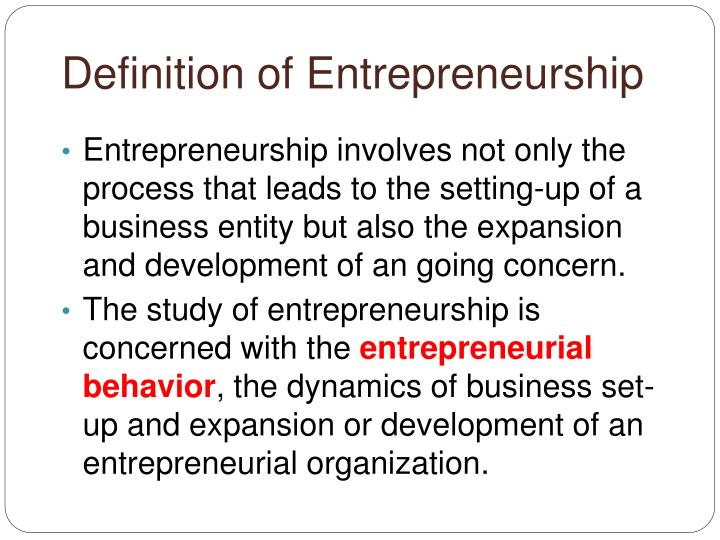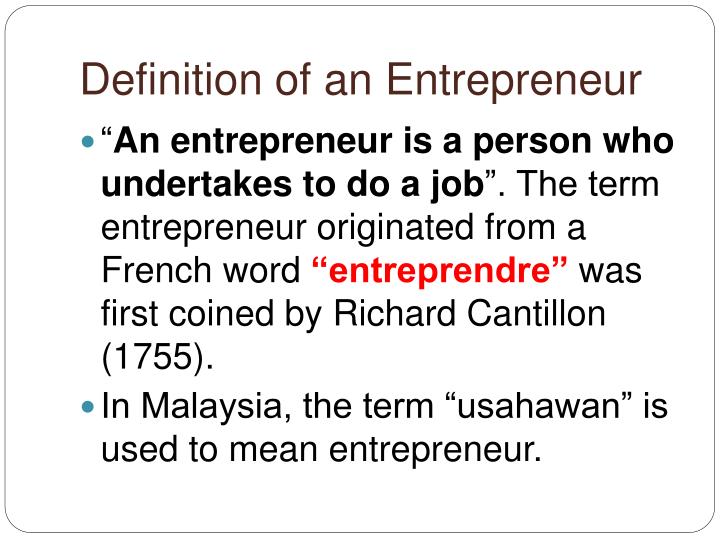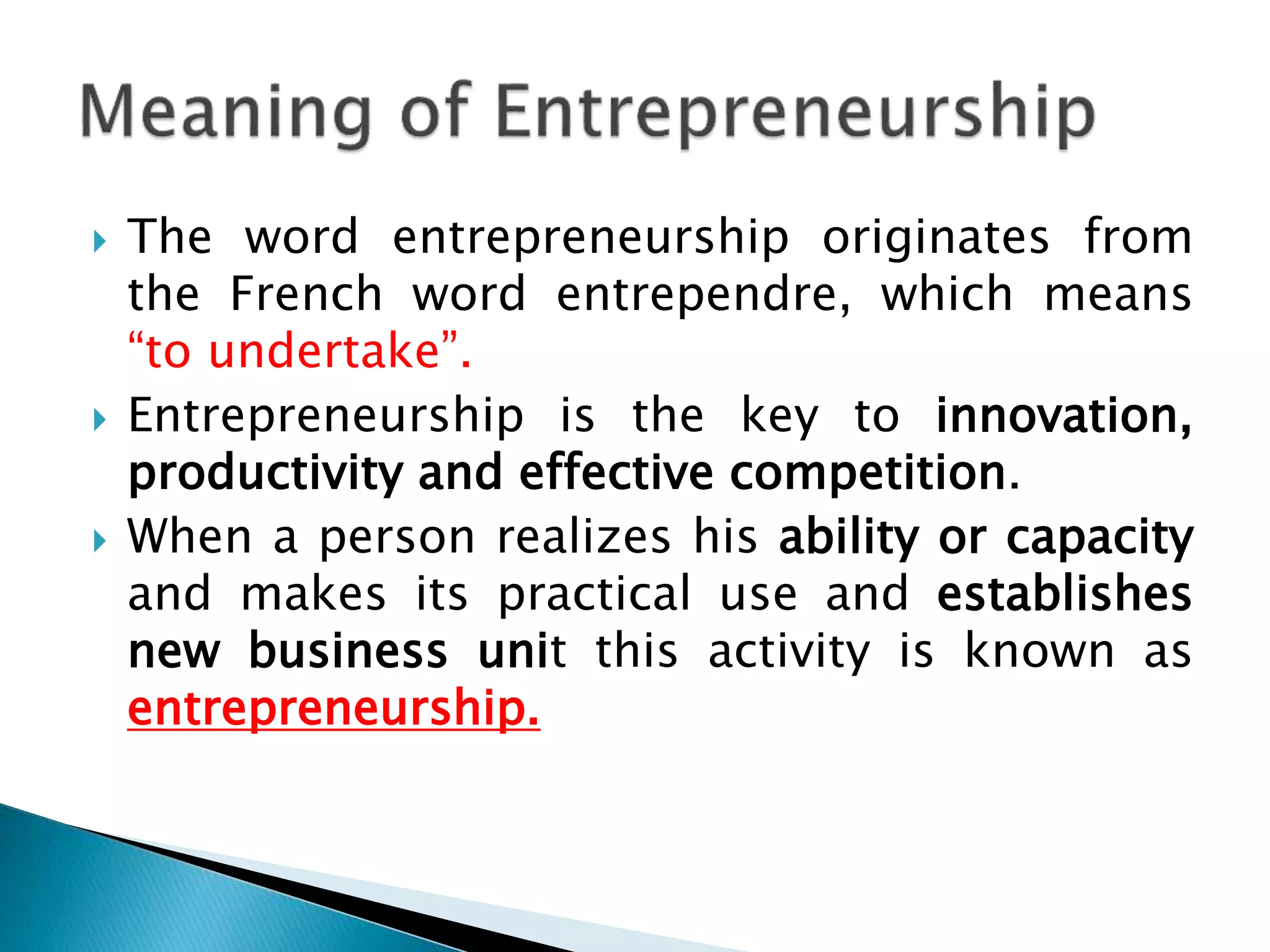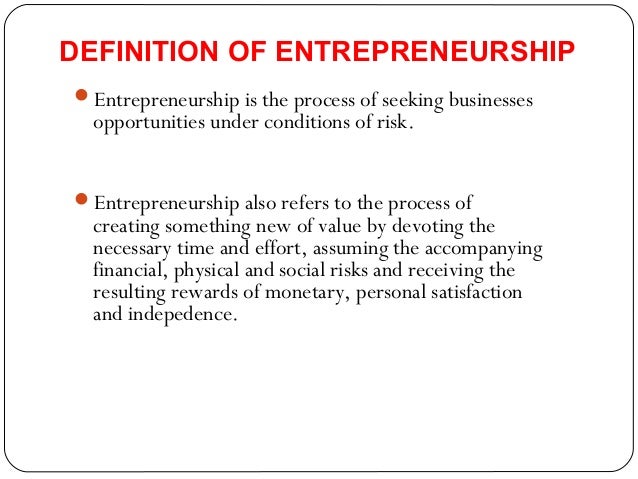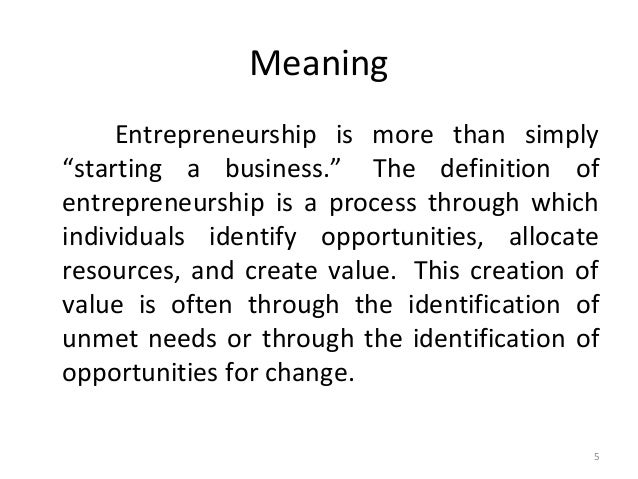What's The Definition Of Entrepreneur
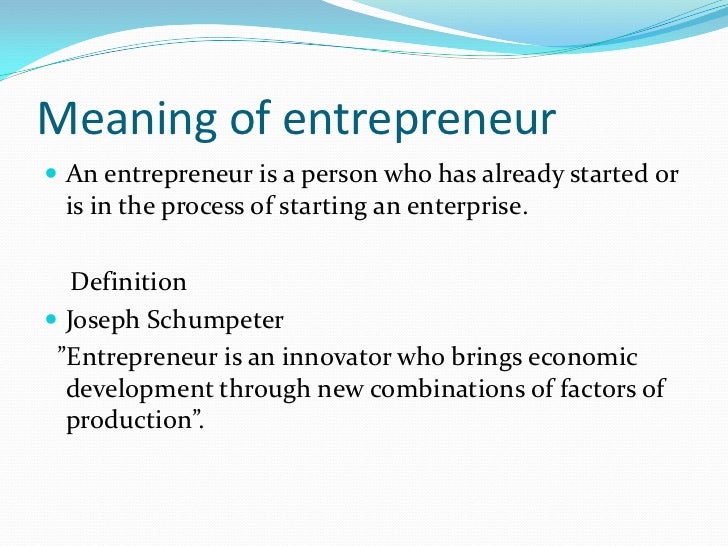
The term "entrepreneur" remains a subject of ongoing debate, lacking a single, universally accepted definition despite its widespread use. Understanding the core elements is crucial for aspiring business owners and policymakers alike.
Defining the Entrepreneur: A Moving Target
The essence of entrepreneurship boils down to recognizing opportunities and taking calculated risks to bring innovative ideas to fruition.
But how is it possible to accurately define the term that is so widely used?
Economists, business theorists, and practitioners often have different perspectives, contributing to the complexity of the definition.
Key Elements of Entrepreneurship
At its heart, entrepreneurship involves risk-taking.
Entrepreneurs commit resources, often personal savings and time, with no guarantee of success.
Innovation is another critical component. Entrepreneurs frequently introduce new products, services, or business models.
This can involve disrupting existing markets or creating entirely new ones.
Opportunity recognition is crucial. Entrepreneurs possess the ability to identify unmet needs or inefficiencies in the market.
They can then capitalize on these opportunities through creative solutions.
Lastly, entrepreneurs are often characterized by resourcefulness.
They are able to manage available resources effectively, including capital, labor, and knowledge, to achieve their goals.
Diverging Perspectives
Joseph Schumpeter, a prominent economist, famously defined entrepreneurs as drivers of "creative destruction."
This perspective highlights the disruptive nature of entrepreneurship, emphasizing how new innovations can displace existing industries.
Other definitions focus on the organizational aspect, viewing entrepreneurs as individuals who create and manage businesses.
Peter Drucker, a management consultant, emphasized the importance of innovation and market creation in entrepreneurship.
He argued that entrepreneurs not only respond to change but actively seek it out and exploit it.
Data and Statistics
According to the Small Business Administration (SBA), small businesses, often started by entrepreneurs, account for 44% of U.S. economic activity.
Furthermore, the Global Entrepreneurship Monitor (GEM) provides data on entrepreneurship rates across different countries, highlighting variations in entrepreneurial activity worldwide.
These data points underscore the significant economic impact of entrepreneurial ventures.
The Entrepreneurial Mindset
Beyond specific skills and knowledge, entrepreneurs often share certain personality traits.
These include resilience, determination, and a willingness to learn from failure.
A strong work ethic and passion for their work are also critical factors.
"The definition of entrepreneurship is constantly evolving to fit the shifting needs of the business ecosystem." - Harvard Business Review
The Debate Continues
The lack of a definitive answer reflects the multifaceted nature of entrepreneurship.
From technological innovators to social activists, the term encompasses a wide range of activities and individuals.
As technology and markets evolve, so too will the definition of what it means to be an entrepreneur.
Understanding the different perspectives and core elements is essential for anyone seeking to embark on this challenging yet rewarding path.
For those exploring entrepreneurship, further research into specific industries and business models is recommended.
Consulting with experienced entrepreneurs and seeking guidance from business mentors can also provide valuable insights.





